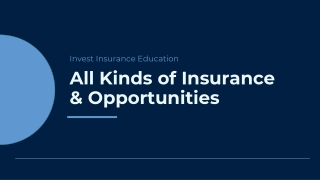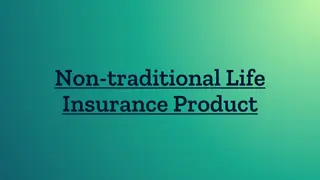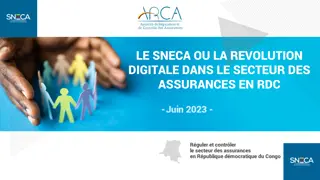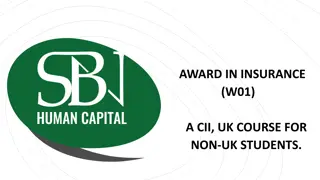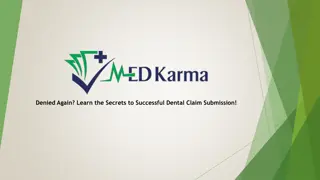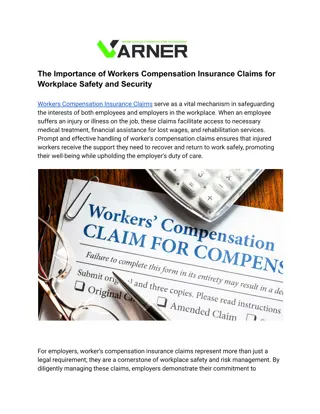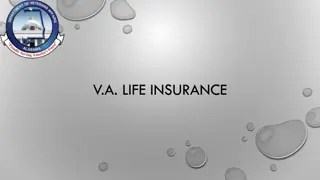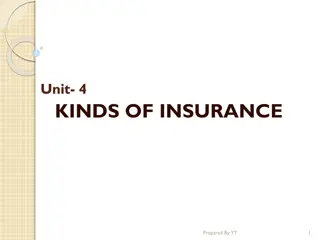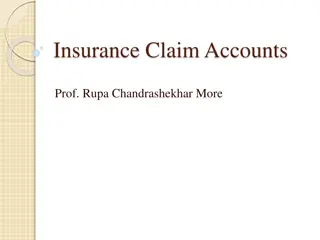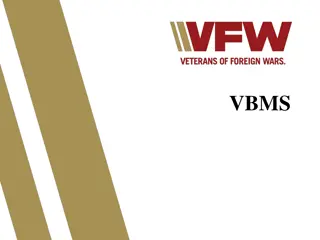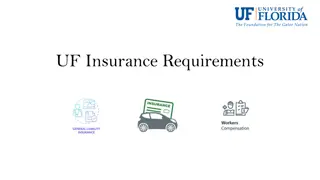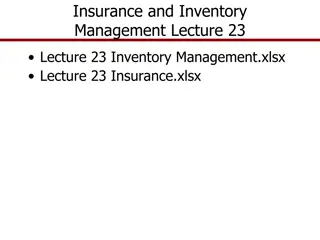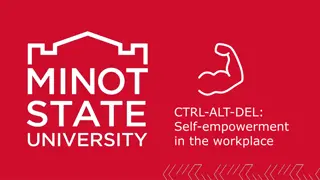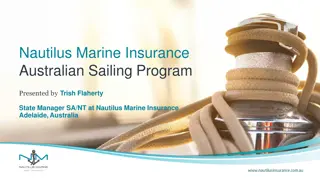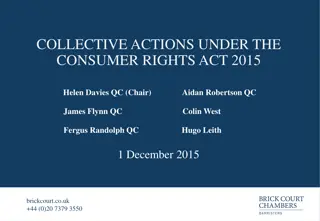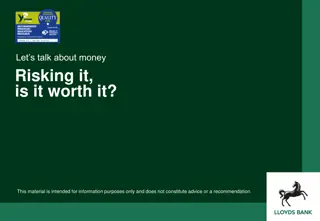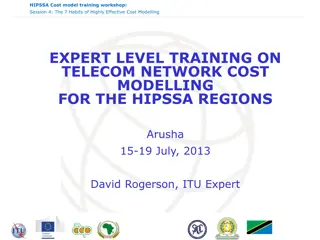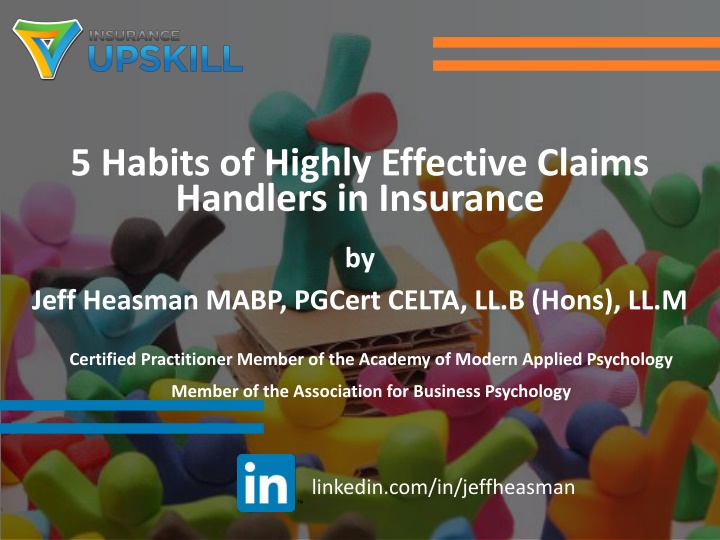
Effective Claims Handling Habits: Insights from Insurance Expert Jeff Heasman
Discover the 5 key habits of highly effective claims handlers in the insurance industry, as outlined by Jeff Heasman. Learn how these habits impact the claims process and how to implement them successfully to enhance your performance.
Download Presentation

Please find below an Image/Link to download the presentation.
The content on the website is provided AS IS for your information and personal use only. It may not be sold, licensed, or shared on other websites without obtaining consent from the author. If you encounter any issues during the download, it is possible that the publisher has removed the file from their server.
You are allowed to download the files provided on this website for personal or commercial use, subject to the condition that they are used lawfully. All files are the property of their respective owners.
The content on the website is provided AS IS for your information and personal use only. It may not be sold, licensed, or shared on other websites without obtaining consent from the author.
E N D
Presentation Transcript
5 Habits of Highly Effective Claims Handlers in Insurance by Jeff Heasman MABP, PGCert CELTA, LL.B (Hons), LL.M Certified Practitioner Member of the Academy of Modern Applied Psychology Member of the Association for Business Psychology linkedin.com/in/jeffheasman
Learning objectives By the end of this session, participants will be able to: identify the 5 habits of highly effective claims handlers. explain how these five habits impact the claims process both from the insurer and customer perspectives. implement a strategy to be a highly effective claims handler.
The 5 habits Highly effective claims handlers always: 1. seek disconfirmation, not confirmation; 2. avoid splitting the difference; 3. focus on solutions rather than problems; 4. ask more than they state; and 5. summarise and show how the law/policy terms apply.
The mindset. (Think Again by Adam Grant) Functional fixedness (looking for patterns). Self-serving bias. Facts v stories. Impact: assumptions are avoided and curiosity opens up new lines of enquiry. The customer/third party is more confident that you are carrying out appropriate and objective investigations.
Habit 2 avoid splitting the difference Strategies for offers avoid you getting yourself into a corner. Interests in negotiations. Negotiating by diminishing scale. Impact: you are not seen as a pushover in negotiations and you don t under-settle/over-settle
Habit 3 focus on solutions rather than problems.
Focus on reality. What are they thinking and why? Show empathy. Impact: handling disagreements appropriately is critical in managing customer perceptions/expectations.
Habit 4 ask more than you state The Mom test. Active listening + discriminative listening. Probing style questioning v leading questions. Impact: decisions are made on substantiated grounds and the customer/third party feels listened to.
Habit 5 summarise and apply Simplify and apply. A highly effective method: Impact: the customer / third party is able to see and understand what has been considered and how it applies to their specific situation. Claim Law Evaluation Outcome
An example the facts Susan is a chartered surveyor and she prepared a structural report on a property that John was interested in buying. Susan s report concluded there was no structural issues. Based on that report, John purchased the property for 220,000. It transpired there was subsidence at the property and Susan should have highlighted this in her report. John now intends to sell the property because he doesn t want the hassle of repairs. The revised value of the property is 130,000. John makes a claim against Susan. Susan contacts you and asks whether John can sue her because she heard from her friend that John can t claim for pure economic loss. Advise Susan.
An example advice using CLEO (C) The claim by John is for pure economic loss and generally this is not recoverable in law. (L) However, the law states that where there is a special relationship (surveyor/client) and someone has relied on your professional skill and judgement to their detriment, they may be able to recover damages for pure economic loss. (E) In your case, John engaged you as a professional and he relied on your professional skill and judgement. You knew, or ought to have known, that John was relying on your advice and it was reasonable for him to do so. Unfortunately, the advice was not correct and he relied on this to his detriment. (O) The outcome is that John will be able to pursue a claim for pure economic loss and he has reasonable prospects of success.
The 5 habits Highly effective claims handlers always: 1. seek disconfirmation, not confirmation; 2. avoid splitting the difference; 3. focus on solutions rather than problems; 4. ask more than they state; and 5. summarise and show how the law/policy terms apply.
Restatement of learning objectives During this session, we have: identified the 5 habits of highly effective claims handlers. explained how these five habits impact the claims process both from the insurer and customer perspectives. learnt how to implement a strategy to be a highly effective claims handler.

